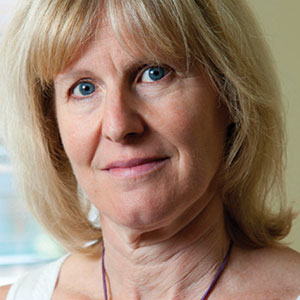This LMC vote does not mean GPs support co-payments

The LMC conference has just passed a motion instructing the GPC ‘to produce a discussion paper outlining alternative funding options for general practice, including co-payments’.
Let me first make something clear. This was never intended to be a motion primarily about co-payments. The way it became so was problematic and disappointing. It was a motion drafted by the agenda committee following a discussion involving about 50-60 GPs on whether care could and should be rationed. As might be expected, they held widely differing views and the chair had the difficult task of trying to represent those views in the form of a binary motion that was later presented to the whole of conference for a vote. We did not get the chance to agree the motion in the actual discussion forum as it was drafted later.
I was very unhappy with the wording of the motion because singling out co-payments for a special mention implied two things: firstly that co-payments should be part of the solution to the underfunding of primary care; and secondly, that it was the preferred option of those who took part in the parallel discussion which formed the basis of the motion (later drafted by the agenda committee). Neither of these is true.
I and many others who took part in the parallel discussion have no desire whatsoever to see co-payments as part of any proposed solution to the problems of general practice. Patients, particularly sick and disadvantaged ones, should not be made to pay to bail us out of problems caused entirely by a government bent on dismantling our universal health service free at the point of use by means of needless reorganisation and savage cuts. Any form of charging will exactly penalise those who most need the service we provide. There is a wealth of evidence to support this opinion and further evidence around the effectiveness and outcomes for different models of care. The whole point of the group requesting a discussion paper was to ensure that options people are already talking about can be explained and examined properly, using evidence and information already available.
Never the less there are colleagues who, in the face of an intransigent and reckless government, still seem to believe that making patients pay for ills caused by government and NHS England is a potential solution. They talk of charging and co-payments and believe it is possible to safety-net in such a way that no one who is vulnerable will be disadvantaged. There were such opinions expressed in the discussion. However, there were others who gave evidence of current successful working alternatives that made any need for co-payments entirely unnecessary.
It was my hope that an informed discussion paper based on thorough research could examine the options and potential consequences or outcomes of those options where evidence for them exists.
In the end there was no debate where reservations could be expressed despite agreement with the main point of the motion: the only speaker allowed was the Proposer, who turned a motion intended to call for evidence into a platform for his own enthusiasm for co-payments.
No sensational headlines please. GPs have not voted for co-payments!
Pulse October survey
Take our July 2025 survey to potentially win £1.000 worth of tokens










